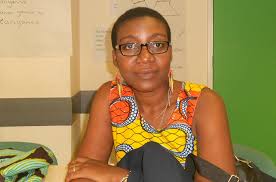The democracy in the digital media landscape is good but does it work favourably for all audiences? Agreed the platforms employed by the media are shaping political, economic and the social life.
These in themselves do not pose a challenge however some of the contents produce with the quest to driving home the conversation possess potential risks and danger to children and young people.
For the purposes of this write up, we would limit the definition to the United Nations Convention on the Rights of the Child because it is the most widely ratified human rights treaty in history and it has helped to transform children’s lives for the past 30 years.
The Convention on the Rights of the child defines the CHILD as “a human being below the age of 18years.” The UNCRC entreats all states to consider the best interest of the child in whatever is being done for/with and to them in this regard.
Needless to say the interest of this category of media consumers has often not been captured in the discussion of content design and delivery but are expected to find their way to fit in the array of things when it comes to Adverts and products probably for the gains.
Article 17 of the UNCRC says and I quote “Children have the right to reliable information from the media.
Mass media such as television, radio and newspapers should provide information that children can understand and should not promote materials that could harm children.”
This goes to suggest there should be some level of moderation in content to suit the best interest of the child and I am wondering if anyone has such consideration in their quest to produce news, entertainment or adverts.
The Child Online Protection (COP) strategy guidelines put together by International Telecommunications Union (ITU) and UNICEF for Industry sort to address the concerns regarding safety of children when using information and communication technologies (ICTs).
The guideline provides advice on how industry can work to help ensure children’s safety when using the Internet or any of the associated technologies or devices that can connect to it, including mobile phones and game consoles.
The purpose of this feature is to:
- Establish a common reference point and guidance to the ICT and online industries and relevant stakeholders.
- Provide guidance to companies on identifying, preventing and mitigating any adverse impacts of their products and services on children’s rights.
Our working definition for a responsible media at Child Online Africa is “The ability to analyze the impact of a business’s technology and media application use and make sure that it does not have adverse effects on ALL consumers be it personal, social or environmental growth.”

Situating what goes on in our spaces with this working definition, it is obvious most of the content being produced by the media would not pass this test.
The ramification of not practicing the safeguards can be dire for the child, family and country at large.
The fact that most people rely on information from the media and it’s the fastest way to carry out education and awareness depending on how content is structured and at what time it is delivered, it is important much attention is paid to that critical role.
Child Online Africa (COA) formally J Initiative (JI) is a child and family focused research and advocacy based non-organization governmental organization that campaigns for/with children and young people with their families to influence policies and changes practices that affect child welfare in Ghana and across Africa.
If this feature has affected you in anyway or wish to have more information on the role of media as a stakeholder in Child Online Protection, contact the Child Online Africa on 0272 001 006 or 0242 305 656.
Author: Awo Aidam Amenyah (Executive Director, Child Online Protection)


